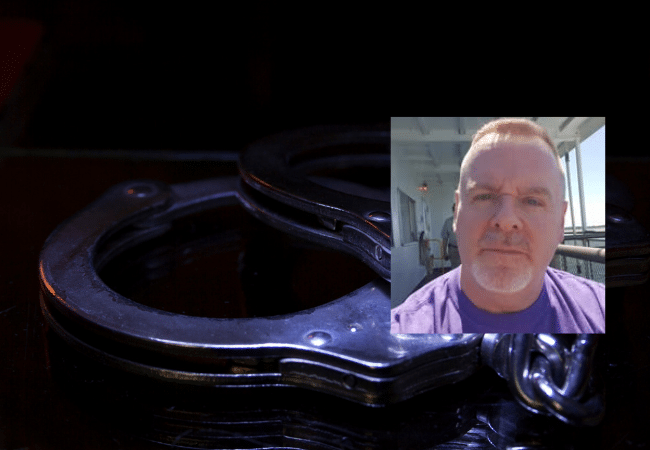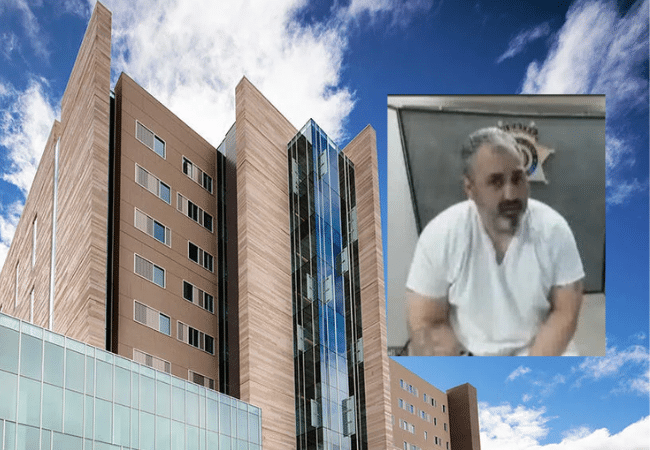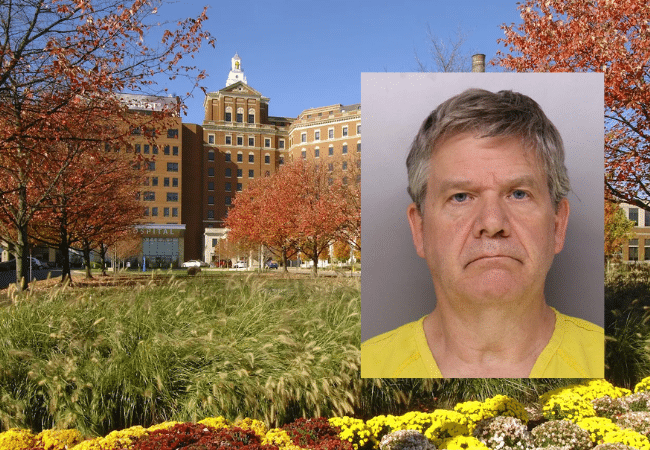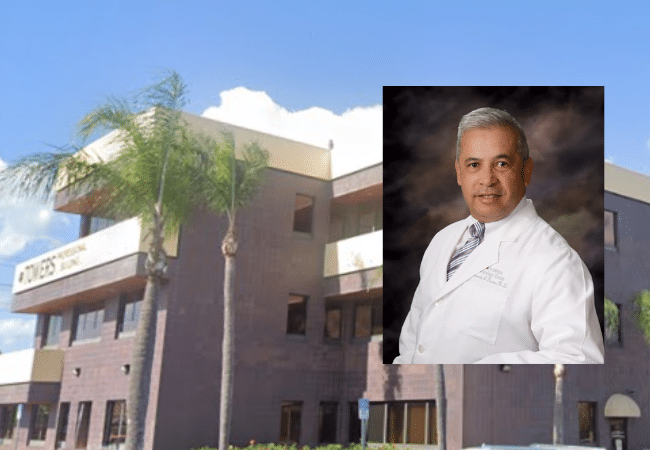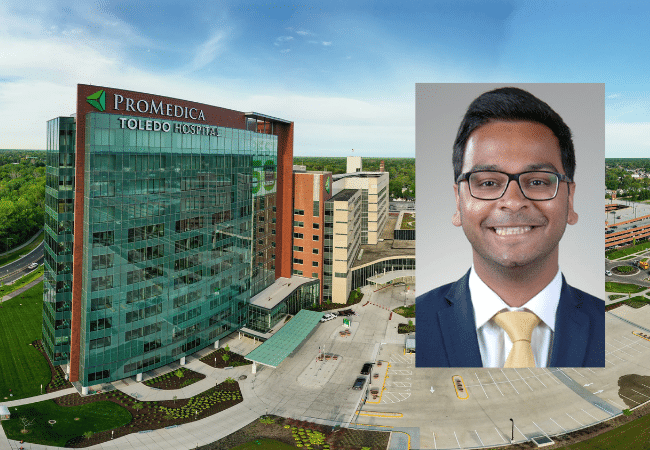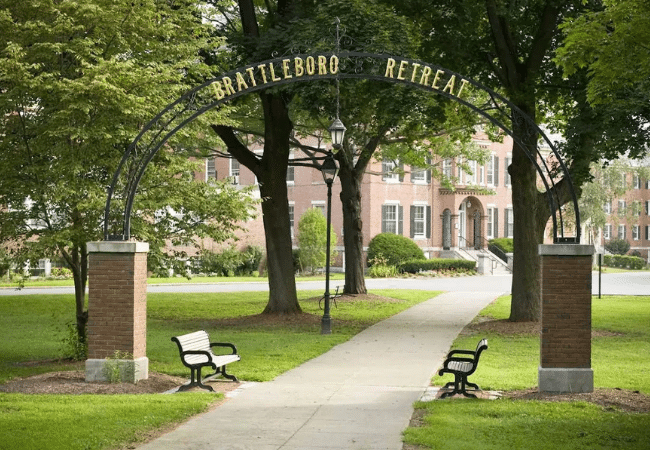ANDREOZZI + FOOTE
HEALTH CARE SEXUAL ABUSE LEGAL SOURCE
Home » Practice Areas » Health Care Sexual Abuse
Reviewed by:
Benjamin D. Andreozzi, Esq.
- Last Updated: January 9, 2026
On This Page
- What Is Health Care Sexual Abuse?
- How Andreozzi + Foote Helps Health Care Sexual Abuse Victims
- Types Of Sexual Abuse In Health and Social Care Settings
- Where Abuse Happens: Common Health Care & Wellness Environments
- Why Is Health Care Sexual Abuse So Underreported?
- Can I Sue A Doctor, Therapist, or Facility for Sexual Abuse?
- What To Do If You Or A Loved One Has Been Abused In A Healthcare Setting
- Contact Our Health Care Sexual Abuse Attorneys Today
We entrust health care professionals, wellness providers, and residential facilities with our welfare and our loved ones’ well-being. We expect health care facilities to be places of healing, not abuse or exploitation. Unfortunately, sexual predators often prey on vulnerable people seeking medical attention. Sexual abuse in health care settings is a serious issue that can have devastating effects on individuals and communities.
If you or a loved one has experienced sexual abuse by a health care provider, you are not alone. Andreozzi + Foote’s health care sexual abuse attorneys have years of experience advocating for victims of sexual abuse and exploitation in nursing homes, hospitals, doctors’ offices, and other health care facilities. It’s important to know that you have legal rights and options for pursuing justice after experiencing abuse.
What Is Health Care Sexual Abuse?
Health care sexual abuse includes any unwanted sexual behavior by a medical provider, therapist, or other health care professional. Such conduct may involve coercion, manipulation, sexual assault, and exploitation of power dynamics and vulnerable patients. Abuse can occur in hospitals, nursing homes, clinics, therapy offices, massage centers, residential care facilities, and more.
In a health care setting, patients entrust health care providers to care for them when they are sick, seeking medical advice and guidance. Doctors take an oath to do no harm, and the public relies upon medical professionals to provide care. They are given a great deal of trust and sensitive information. Because of this, patients are uniquely vulnerable to abuse by health care professionals.
How Andreozzi + Foote Helps Health Care Sexual Abuse Victims
At Andreozzi + Foote, we understand the courage it takes to reach out for help after experiencing abuse. Our trauma-informed attorneys are dedicated to providing compassionate, confidential support throughout the legal process. With extensive experience advocating for survivors of sexual abuse, we are committed to creating a safe and supportive environment where your voice is heard and your rights are fiercely protected. Contact us today to take the first step toward justice with a free, confidential consultation.
Types Of Sexual Abuse In Health and Social Care Settings
Sexual abuse in health care settings can take different forms, all of which involve violations of patients’ boundaries. Abuse can occur across various health care settings, including hospitals, clinics, nursing homes, and residential facilities.
Even if a patient has consented to an examination, that consent is conditional. To fully consent, a patient must understand the full extent of every aspect of the examination or procedure. In addition, patients have the right to stop an exam and revoke consent if they are uncomfortable. Even if they have signed a waiver beforehand, conduct might be actionable if it goes beyond the bounds of the consent.
Some of the most common types of health care sexual abuse include the following:
- Inappropriate touching and exams
- Coercion and exploitation
- Sexual comments
- Photos or recordings taken without patient consent
- Sexual assault and misconduct
- Manipulation of vulnerable patients
Where Abuse Happens: Common Health Care & Wellness Environments
Health care abuse most frequently occurs in environments where oversight is limited and patients are isolated or vulnerable. Children, seniors, and those struggling with substance abuse or mental illness are often the targets of this abuse.
Hospital and Clinics
When you or a loved one visits a hospital or doctor’s office, you expect the health care professionals to do their best to treat you without causing unnecessary harm. It’s important to know that you have the right to stop an examination if you ever feel uncomfortable. During physical exams, examiners should be open to answering any questions you have and fully explain what they are doing and why.
Nursing Homes and Elder Care Facilities
Nursing homes should be places where older adults receive care, support, and protection. Unfortunately, sexual abuse is not uncommon in these facilities. This behavior is a violation of the rights and dignity of vulnerable individuals and is considered a serious form of elder abuse.
Sexual abuse in nursing homes can be perpetrated by staff members, other residents, or visitors. It can have severe physical, emotional, and psychological consequences for the victims, leading to feelings of shame, guilt, fear, and a decline in overall well-being.
Residential Treatment & Group Homes
Residential facilities house children in group homes or juvenile detention centers. These centers function as alternative housing placements for young people who need more intensive behavioral or mental health treatment or those convicted of juvenile criminal offenses. Other children reside in group homes if they lack other family or caregivers.
Children in residential facilities are particularly vulnerable to sexual abuse due to substance use issues, mental health challenges, previous abuse or neglect, and the power dynamics between staff and residents. This power is often misused and manipulated into not only abusing youth, but also to keep them silent about the abuse by threatening removal or additional court sanctions.
Massage Therapy and Wellness Studios
Massage therapists have a unique opportunity to commit sexual assault, given the intimate level of access they have to their clients. Many major massage chains know of the risk of sexual assault by massage therapists, but do not do enough to protect people from abuse and assault; therefore, they can and have been held responsible.
For many victims, it may be unclear how to identify when a massage therapist has crossed the line into sexual abuse because massage requires touching one’s whole body. A good massage therapist will ensure active and ongoing communication during a massage, obtaining consent for each activity throughout the session. If you participate in yoga, undergo chiropractic care, or engage in another wellness activity that involves instructors touching and manipulating the body to obtain optimal results, the instructor should always ask for permission to touch you.
Behavioral and Mental Health Facilities
Patients seeking assistance for mental health challenges are among the most vulnerable class of individuals in society. Tragically, many patients in mental health facilities are prior sexual abuse victims, making them uniquely vulnerable to being targeted in these facilities.
It is the job of every behavior and mental health facility to prevent patient abuse. State law typically dictates how these facilities should supervise patients, such as performing regular bed checks. Unfortunately, many facilities violate these guidelines, subjecting the providers to civil liability.
Substance Abuse Rehab Centers
Patients who enter rehabilitation facilities for substance use struggles, like opioid addiction treatment centers, are also uniquely vulnerable to sexual abuse, as often they have histories of existing sexual trauma. An estimated 60 to 80 percent of all those entering treatment facilities have underlying sexual abuse histories. Residents can be preyed upon by using their histories to shame them into engaging in sexual acts.
Individuals in early recovery are often not in the right mindset to make decisions regarding sexual activity and relationships. Their focus is supposed to be on recovery. People just coming out of addiction are often rediscovering themselves, and workers may exploit this within the facilities. The threat of getting thrown out of treatment is a tactic used by abusers to keep victims quiet.
Why Is Health Care Sexual Abuse So Underreported?
The real prevalence of sexual abuse in health care settings is difficult to determine due to underreporting, varying definitions, and cultural differences. Studies show that most victims never report sexual abuse by physicians. A lack of clarity on what constitutes health care sexual abuse also contributes to underreporting.
Underreporting of abuse is particularly high in health care settings due to confusion, shame, guilt, and fear of being thrown out of a facility. There is an inherent power imbalance between health care providers and patients. This dynamic leaves the patient dependent on the provider and vulnerable to potential abuse. If you believe you may have experienced abuse in a health care setting, know that it is not your fault, and you have the right to seek justice.
Can I Sue A Doctor, Therapist, or Facility for Sexual Abuse?
If you or a loved one has been sexually abused by a doctor or therapist at a health care facility, you may be eligible to file a civil lawsuit against the perpetrator and the facility itself. Hospitals, nursing homes, rehabilitation centers, and residential care facilities are regulated under state and federal laws that, if violated, subject them to legal liability. Civil cases differ from criminal charges; the perpetrator or institution doesn’t need to be criminally convicted for victims to file a civil lawsuit.
For survivors of sexual abuse at the hands of health care providers, it’s important to seek justice as soon as possible. At Andreozzi + Foote, our team of trauma-informed attorneys understands the gravity of what you’ve been through and will ensure you receive the proper time, attention, and understanding you need to pursue justice and healing.
Our attorneys are uniquely trained and educated in the laws, regulations, rules, policies, and procedures. We have spent decades researching and litigating these cases, giving us a unique lens on the law. We use our knowledge and skills to fight for accountability and justice in cases of abuse.
What To Do If You Or A Loved One Has Been Abused In A Healthcare Setting
- Ensure safety: Make sure you or your loved one is safe and out of harm’s way, whether that involves leaving a care facility or no longer seeing a certain physician.
- Report the abuse: Contact law enforcement and any relevant regulatory agencies to report the abuse. The agencies will then investigate the incident. Prosecutors will ultimately decide whether to file criminal charges against the perpetrator. Regulators may take disciplinary action against the provider and facility involved.
- Preserve evidence: Gather as much information and evidence as possible, including records, photos of injuries, witnesses and their contact information, victims’ statements, and any signed documents or care plans.
- Contact a lawyer: Once you are in a safe location and have gathered evidence, contact an experienced health care sexual abuse attorney for assistance navigating your next steps.
Contact Our Health Care Sexual Abuse Attorneys Today
If you or someone you know has suffered sexual abuse or assault by a health care provider, please don’t stay silent. Andreozzi + Foote can help you fight back and ensure the institutions that enabled the abuse are held accountable for the harm they caused.
Call us at (866) 311-8640 or reach us online for a free and confidential assessment of your case.
CONTACT US TODAY
Free In-Depth,
Confidential Consultation
Empowering Survivors and Delivering Justice Nationwide
We understand the courage it takes to reach out for help, and we are here to listen. At Andreozzi + Foote, our trauma-informed attorneys are dedicated to providing compassionate, confidential support every step of the way. With extensive experience in advocating for survivors of sexual abuse, we are committed to creating a safe and supportive environment where your voice is heard and your rights are fiercely protected. Contact us today for a free, in-depth consultation and take the first step toward justice.


